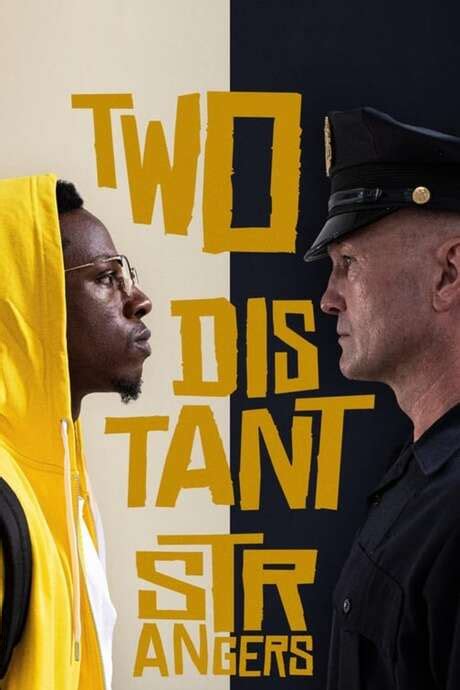Two Distant Strangers

Description:
Two Distant Strangers follows Carter, a Black man who is forced to relive a deadly encounter with a white police officer in a brutal time-loop reality as he tries to survive a single day in the city. Directed by Travon Free and Martin Desmond Roe, the short uses tight framing and relentless pacing to highlight racial profiling, fear, and violence. The film fuses realism with a sci-fi conceit to deliver a searing, humane critique of injustice.Keywords:
Distance, Drama, Short Film, Thriller, Police Brutality, Racial Injustice, Time Loop, Social CommentaryWhat is the point of the movie Two Distant Strangers?
"Two Distant Strangers" is a short film that explores systemic racism and police violence through the lens of a time loop narrative. The protagonist, Carter, finds himself reliving the same day after a fatal encounter with a police officer. Each iteration forces him to confront the harsh realities of racial profiling and the struggle for justice. The film highlights the cyclical nature of these issues, emphasizing the need for change and awareness in society. Ultimately, it serves as a poignant commentary on the urgent need for reform and understanding in the context of racial injustice.
Is Two Distant Strangers based on a true story?
"Two Distant Strangers" is a fictional short film that explores the issue of police violence and systemic racism through a time-loop narrative. While it is not based on a specific true story, it draws inspiration from real-life events and the experiences of many individuals who have faced similar injustices. The film aims to provoke thought and discussion about these pressing social issues, reflecting a broader reality rather than depicting a single true story.
What is the story of the movie Two Distant Strangers?
Did the cop know in Two Distant Strangers?
In "Two Distant Strangers," the cop, Officer Mike, does seem to recognize the protagonist, Carter, as their encounters repeat due to the film's time-loop premise. This awareness adds tension to their interactions, as Officer Mike's actions are influenced by the knowledge of previous iterations. The film explores themes of systemic racism and the cyclical nature of violence, highlighting how the characters are trapped in a cycle that they cannot escape, ultimately reflecting on societal issues.
Explore More Categories: